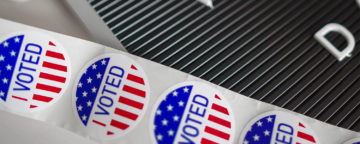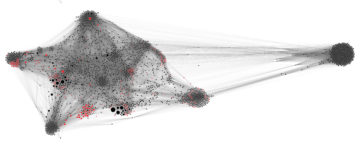Children’s Hospital of Philadelphia and APPC researchers have demonstrated the feasibility of incorporating a virtual driving assessment system into the driver’s licensing process in Ohio.



Children’s Hospital of Philadelphia and APPC researchers have demonstrated the feasibility of incorporating a virtual driving assessment system into the driver’s licensing process in Ohio.

The 2020 Annenberg Constitution Day Civics Survey finds Americans knowing more of their First Amendment rights and the three branches of government.

Annenberg Classroom has released a new film about the First Amendment right of the American people “to peaceably assemble,” the latest in its series of award-winning documentaries about the U.S. Constitution.

Exposure to anti-vax tweets was followed by negative vaccination attitudes and behavior – but not among people who discussed vaccination with others.

Speaking in Zoom panels, members of the Transatlantic Working Group have promoted online transparency and accountability for digital platforms.

In a new report, the Transatlantic High Level Working Group on Content Moderation Online and Freedom of Expression urges adoption of a flexible regulatory framework with greater transparency and accountability to curb online hate speech, violent extremism, and viral deception.

APPC will collaborate with the Center for a New American Security and Penn Law’s Center for Ethics and the Rule of Law on a project to protect the integrity of the 2020 election.

iCivics and APPC have rereleased two free online games, Branches of Power and Court Quest, designed to help educators and parents teach students about the federal government.

Users of conservative or social media in the early days of the COVID-19 outbreak were more likely to be misinformed about how to prevent the virus and believe conspiracy theories about it.

In the 2016 election cycle, Russian Twitter trolls sent targeted pro- and anti-vaccination tweets via various fake persona types, poisoning the kind of crisis communications that may be critical today in the coronavirus pandemic.